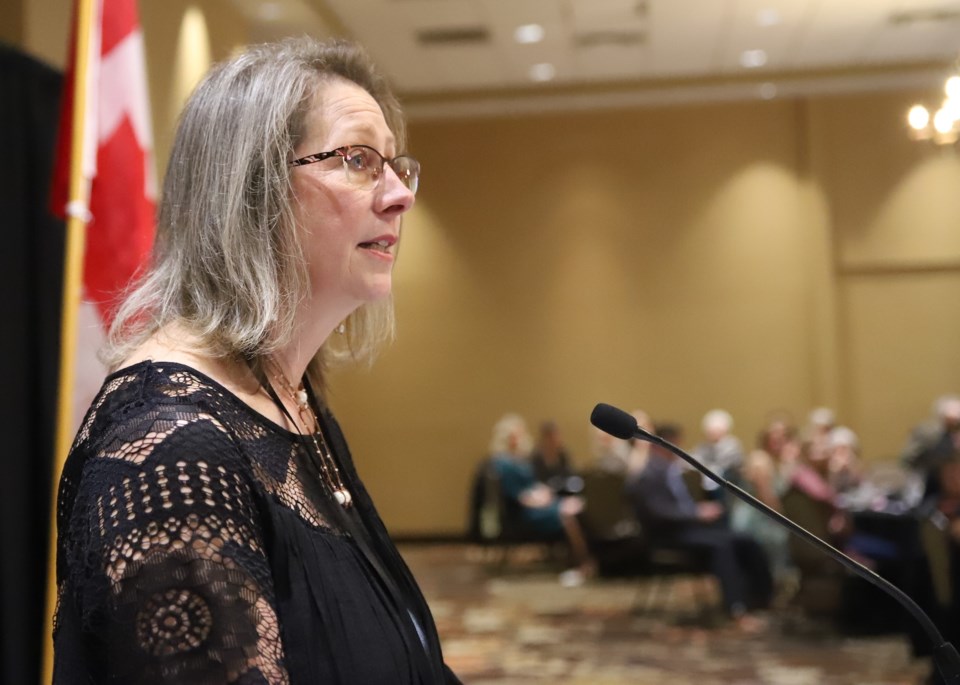MOUNTAIN VIEW COUNTY - The Smith government's plans to get rid of municipal codes of conduct for council members without prior consultation with municipalities is a troubling development, says Mountain View County Reeve Angela Aalbers.
The government recently introduced legislative amendments that would repeal the requirement for municipal councils to have a formal code of conduct and prevent them from implementing their own locally-developed codes of conduct.
“Mountain View County Council is disappointed by the government of Alberta’s recent decision to repeal municipal codes of conduct without consultation with municipalities,” Aalbers told the Albertan.
“While we recognize that no system is perfect, the unilateral removal of this important governance tool without first engaging local governments in meaningful dialogue, is concerning.”
The code of conduct is not only a framework for supporting respectful council relations, but also serves as a mechanism for public accountability, she said.
“Its repeal removes a transparent and accessible process that allowed residents to raise concerns and hold their elected officials to a standard of ethical behaviour throughout their term in office,” she said.
Municipal Affairs Minister Ric McIver says the elimination of municipal codes of conduct will “reduce conflict and strengthen local governance”.
“In recent years, municipal codes of conduct have been weaponized between elected members of some local councils in Alberta, resulting in mistrust, dysfunction and failure to serve Albertans,” McIver said in a release.
Repealing the municipal codes of conduct will “help ensure members are held accountable at the polls, every four years, by votes who initially elected them,” he said
The government plans to “engage with municipalities on the establishment of common practices for municipal councils and an independent ethics commissioner to address ethics matters involving municipal council members,”he said.
For her part, reeve Aalbers said, “While we support the intent to improve governance, we remain cautious about the increasing centralization of authority and the ongoing reduction in local decision-making autonomy.
“Strong local governments are built on trust, accountability, and the ability to govern in a way that reflects the needs and values of their communities.”
The county remains committed to “serving our residents with integrity and professionalism, and we will continue to advocate for respectful collaboration between municipalities and the province; built on transparency, consultation, and mutual respect,” she said.
Collaboration framework updates welcome
Meanwhile, proposed updates to rules around inter-municipal collaboration frameworks (ICF) – used by municipalities to work together on projects of joint interest – are welcome, says Aalbers.
“Mountain View County welcomes the clarity introduced through the ICF-related amendments in Bill 50. Clearly defining which services are included, and which are not, within ICFs is an important step in strengthening inter-municipal cooperation across Alberta.
“While we appreciate the province’s efforts to provide consistency through legislation, it’s important to note that our approach in Mountain View County has always gone beyond minimum requirements.”
The provincial government recently put forward proposed amendments the would address concerns raised by some municipalities around ICFs.
“We are proud of the strong, collaborative relationships we’ve built with our urban municipal partners, rooted in mutual respect and a shared commitment to providing the best possible services for our residents,” said Aalbers.
The county is especially pleased to see the amendments “recognize the importance of all municipal partners having a seat at the table during key decision-making processes,” she said.
“Effective collaboration cannot be achieved through funding alone. It must be built on transparency, shared responsibility, and open dialogue. These principles have guided Mountain View County’s approach to inter-municipal collaboration, and we are pleased to see them reflected more clearly in provincial legislation.”



